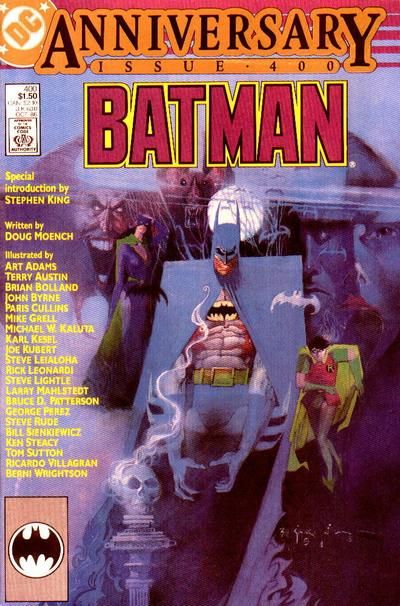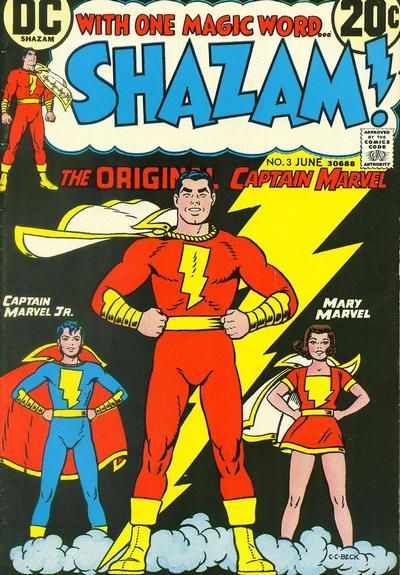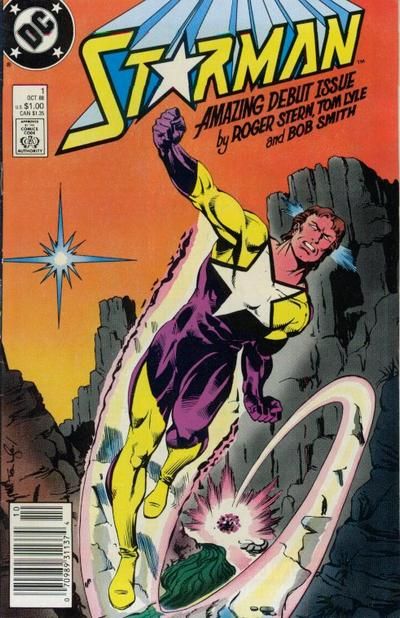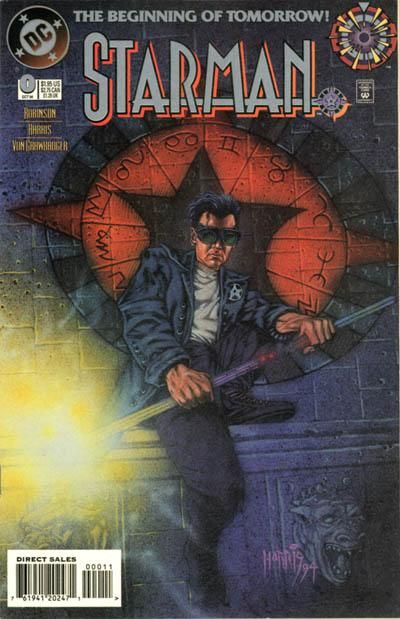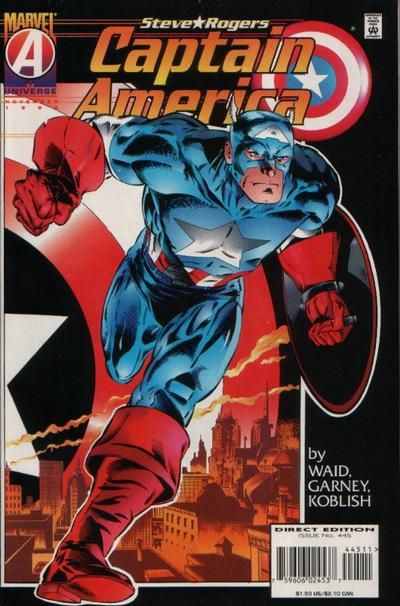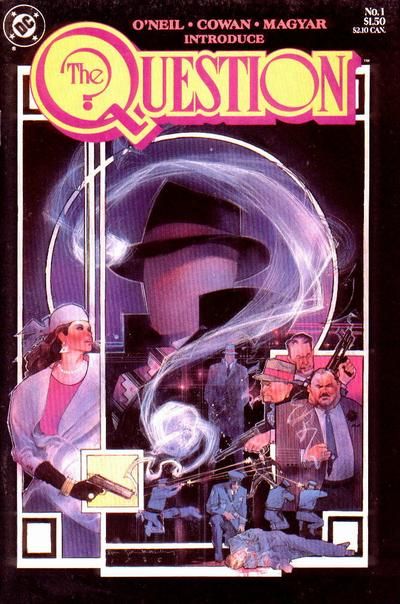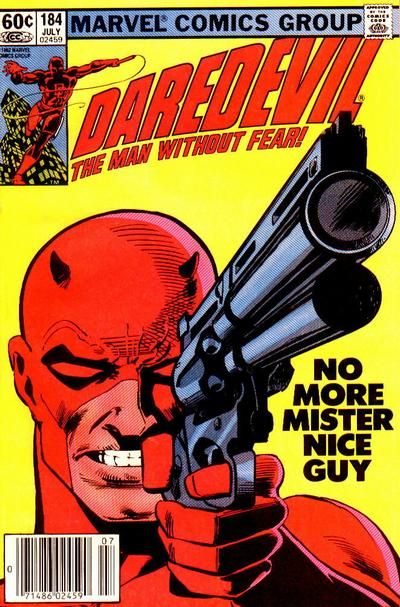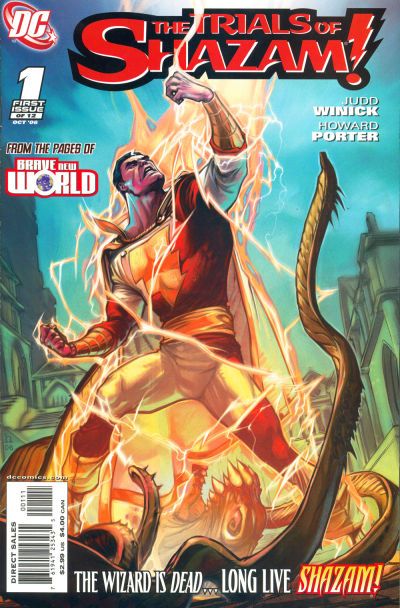I suspect that all of us who read and love superhero comics have a slight touch of obsessive-compulsiveness. We theorize. We index. We struggle mightily to work out chronologies and histories for characters both major and minor. Some of us feel so strongly about this stuff we spend hours writing it all up or wrangling about it on the internet or publishing zines and books and whatnot. Others, well, you may not think about it a lot, but I'm betting it's there, part of your hardwired responses to the comics you read.
I think this is the reason why I never have quite been able to get into Smallville, despite being a lifelong fan of Superboy comics and enjoying many of the episodes. On a whim, we tuned in to the season premiere (We happened to see the promo with Lex Luthor saying "Kneel before Zod!" and my wife, who has as much affection for the first two Superman films as I do, said instantly, "Oh, we have to check that out." Good choice on the clip, promo guys.) It was okay, I guess -- there was a lot to catch up on, we hadn't checked in with it in a while -- but the trouble was, I kept tripping over my own continuity-geek OCD. There was a lot about the show to enjoy, but try as I might I could not, COULD NOT, let go of the idea that "Jeezus, now Lois AND Jimmy Olsen have seen the young adult Clark Kent without glasses and looking like a football hero. There's just no way. Sorry, no. This is wrong."
I mention this not to get into another wrangle about Smallville -- already did that column a few months back -- but simply to point out that this is an example of a little hardwired reaction I carry in the back of my head when I come to a superhero story. I have a bunch of them, and I'd bet most of the people that visit this site have their own set of such preconceptions and reactions, especially in the way they classify the superheroes they read about. There's lots of ways to do it. Powered or non-powered. Team player or loner. Urban small-scale or planetary/international.
My own sounds really silly when I say it out loud. But it has colored my perception of superheroes since I was five years old, and even though I was hardly able to articulate it then, I still knew it. You have no idea how ridiculously validated I felt when, decades later, in his introduction to an anniversary issue of Batman, Stephen King brought up the same particular distinction.
Basically, it boils down to this -- when it comes to superheroes, are you a Batman fan or a Superman fan?
Or, to put it another way -- are you a daytime hero fan or a night-time hero fan?
Here's the easy check. Quick, without thinking about it too hard, name your five favorite super-characters. That's usually a big enough sample. Chances are three or more of them will fall into one category or the other. Day or night.
I was always a night-time guy. Batman, Daredevil, Dr. Strange, the Question, several incarnations of Manhunter, the Creeper, Jonah Hex... you could probably finish out the list yourself. Those are the kind of characters I am instantly poised to like. It's not so much about the time of day in which the stories take place, as it is the atmosphere they carry with them. The sensibility of the book and the characters is a night-time one. I'm tempted to say "noir," but that word has more connotations than really apply here, particularly regarding the emotional tone. What I classify as a night-time character isn't necessarily a pessimistic one, or a cynical one. Just... you know... kinda... dark. There's a heightened sense of danger, of the world being slightly scary.
The daytime heroes are pretty easy to pick out too. Superman. Flash. Spider-Man. The Fantastic Four. Captain America. There's more of a carefree sense to the adventures, a sunlit feeling. There's danger, sure, but you have more confidence in facing it, a little more swash in your buckle. The world is a place of wonder and miracles.
I love many of these characters and stories too, don't get me wrong... but they're almost never the first choice for me. I love the FF, but not nearly as much as I love Dr. Strange.
It's a hard thing to explain. It's not just about serious vs. fun-loving, though that's part of it, I think. It has to do with atmophere and approach more than anything else. It's easier to give examples.
The Roger Stern Starman was a daytime guy, the James Robinson Starman was a night-time one. Like that.
Now, these things are not set in stone, obviously. There's always exceptions. You can have a grim Flash story or a lighthearted Batman one, and this is all just my little personal index anyway. But I think you'll find that it works pretty well. Especially when something is really well-executed, but still just feels completely off somehow, chances are it's a case of conflicting sensibilities, it's the wrong tone for the story. Sometimes you can get something really fun and cool by colliding sensibilities -- the essentially night-time approach of Alan Moore to the sunny daytime character of Marvelman, for example -- but that's a very rare exception. More often colliding sensibilities give you a mess. Generally it works a lot better if you suit the natural temperament of the creators to the natural temperament of the characters.
Mark Waid can write a pretty good Batman story, and he's done so, but he is vastly better suited to the daytime guys like the Flash or Captain America. Denny O'Neil's written Superman and Green Lantern, but it's his Batman and Question stories that really knocked it out of the park. And so on.
There are guys that can switch-hit better than others -- Steve Englehart had definitive runs on both Batman and Captain America, two characters that are diametrically opposed in tone. But most creators have an affinity for one kind or the other, I think. For my money the real breakthrough Frank Miller had on Daredevil years ago was simply the realization that all his published adventures to date had the daytime sensibility and clearly DD was a night-time guy. Which worked out great when Miller changed him to one, because Miller was a natural for that kind of story, but what you may or may not have noticed is that everything after Miller was generally better than it was before Miller, too. Because the shift in tone stuck and the darker, night-time version was a better fit for DD.
Now, I daresay a lot of you are out there now saying, "Well, duh. Of course you should fit the sensibilities of the creator and the kind of stories they're telling with the character that fits them." It sure seems like a Duh! proposition. And yet, it's not nearly as common as it should be.
I think this is why I've been so dissatisfied with the current state of Marvel and DC for the last couple of years. Even the good stuff often doesn't feel quite right because to me, these days it's all got the night-time sensibility, there's not even an attempt to match the tone of the story or the natural voice of the creators to the lead character. It's like they don't understand the idea of different characters needing different approaches. Batman, sure, that book's outlook should be grim. But Flash? Teen Titans? Captain Marvel? Come on now.
It's one of the hardest things to do, maintaining an atmosphere in a story. Probably the biggest challenge to a writer that works on mainstream superheroes is holding true to the tone that we expect from that character, without keeping everything else static too. I certainly sympathize. But the solution isn't to just arbitrarily declare that every book in the line has to have the same atmosphere. It's completely possible, and frankly preferable from where I sit, to have Captain America and the Punisher existing in the same fictional locale without insisting their adventures both have the same emotional tone.
We all want comics to be taken seriously, because by extension that means we readers are being taken seriously. But that's not the same thing as the comics themselves being relentlessly serious. And even with me being a Batman, night-time comics guy, it doesn't necessarily follow that I want the DC Universe or the Marvel Universe to be a uniformly dark and night-time kind of place. The more variety a place has, the more interesting a place it is for all of us.
See you next week.


